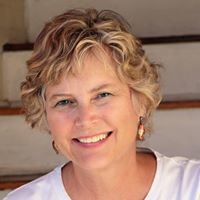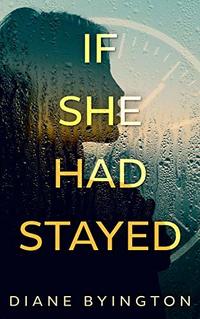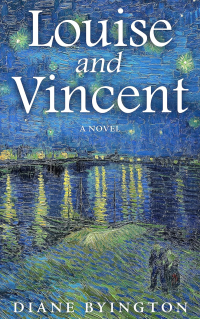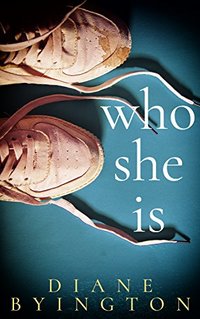Tell us a little bit about your childhood and where you grew up.
Faye, the character in my first novel, WHO SHE IS, moved around a lot, and landed in Florida when she was fifteen. Not much in the book is autobiographical, but that piece is. My dad was working his way up in the corporate world, so we moved regularly. And we ended up in a suburb of Tampa when I was fifteen. We always lived in Southern states, so I feel as though I understand that region of the country better than many.
What is the earliest experience you had with books/writing that you remember?
I learned to read before I went to school. My mother was also a big reader so she took me to the library regularly and we both checked out as many books as they would allow. My first experience with writing was in the fifth grade, when I had to do a creative writing assignment. I chose to rewrite Dickens’ Great Expectations into modern language. All I can remember is that Pip was now Smitty. Anyway, it was so much fun that I decided I loved writing as much as reading.
What do most people misunderstand about college professors?
In my experience, college professors work at least twelve hours every day, creating lectures, grading assignments, doing research, and serving on committees. The hours are grueling and you never feel like you’ve done enough, because someone is always more productive than you. I think people often think that college professors, once they have tenure, do little beyond hanging out and speaking in high-toned language. Not so.
How did publishing your first book change your process of writing?
I became a little more confident that I had something to say. I became more disciplined. I loved the process a little more.
Kaley Kline is a motivated, successful female character who is not alienating. Who inspired her character?
I’m so thrilled that you said that. I had the hardest time making her not alienating. I wrote draft after draft, always with my critique group shaking their heads. “No, you haven’t gotten her yet.” She wasn’t based on anyone, which might have been why she was so hard to write. I do like to write about successful, female characters, though.
Why did you decide to set the story, "Who She Is" in the fall of 1967?
I wanted desegregation and the civil rights movement to be a major part of the book. I also wanted the Vietnam war to be part of the context. And it needed to be set before women were allowed into the Boston Marathon, which was in 1972. I really admire Roberta Gibb and Kathrine Switzer, those two running pioneers, and they needed to be in the story, too.
What other things, apart from writing do you enjoy doing?
I love to read and paint with acrylics. I also love to kayak, hike, and weave.
What do you do when you get an idea for a book? Do you write it out immediately, or do you wait for it to incubate in your head for a while?
I let it incubate and make notes and do research to figure out if it’s feasible. That is my favorite part of the process.
How do you feel about the rise in digital books in recent years?
I love reading ebooks, about as much as I love reading paper books. They are two different things, and I love them both.
What would you change if you could go back to the past?
I made some decisions I would change, just as Kaley did. I didn’t make the same mistakes as Kaley, but I’ve always regretted them. The idea for IF SHE HAD STAYED came because I wished I could go back in time and change some of my own decisions. Later, in the process of writing, I came to understand that things all worked out, and I let go of my regrets. It was a cathartic experience to write the book.
What was your reaction when "Who She Is" became 2018 Royal Palm Literary Award Winner: First Place - Historical Fiction?
I couldn’t believe it. I didn’t go to the conference because I was sure I wouldn’t win. Later, I really wished I’d gone. That would have been incredible.
How much experience is necessary before you get into yoga teacher training?
I started doing yoga from a book when I was sixteen years old. Years later, I actually started taking classes. I think that yoga is one of those things you get better at with practice, but teacher training can be undertaken after only a few years of dedicated practice.
What are some things you wish your readers would take away from your books?
My personal writing credo is “Strong women. Hard times. Happy endings.” I believe in all those things. I’d love for readers to consider themselves as strong, able to persevere through just about anything. Hard times come to all of us. In real life, things don’t always end up happily, but that’s the wonder of fiction. You can make your endings happy. I want people to feel empowered and inspired by my books, even if it’s just a little bit.
Which is the next book you are writing? What is it about?
My current novel is about the last days of Vincent Van Gogh. He was an awesome painter but a pain in the ass as a person. Most people believe he committed suicide, although there are other theories. I’m giving him a happier last few months, even though he still dies. It’s a wonderful thing to write, being able to change history through fiction!
Are you enjoying your experience with AllAuthor so far? Would you recommend this platform to your author friends?
I love AllAuthor. You guys are awesome. Yes, I’ve already recommended it to my author friends. Keep going!





